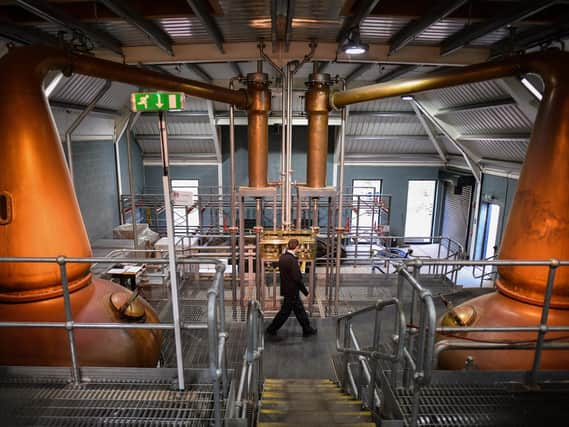Budget 2020: Relief for Scotland's distillers as duties on alcohol frozen again


The measure – which means duty on whisky has now been frozen for nearly three years – was part of a wider standstill of taxes across spirits, wine and beer announced by the chancellor.
The Chancellor also said the UK government will continue to lobby the US administration over “harmful” 25 per cent import tariffs on whisky imposed since October.
Advertisement
Hide AdAdvertisement
Hide AdThe government has already pledged to review the current system of tax on alcohol which sees spirits pay a higher rate per unit of alcohol than any other category.
In addition, the Chancellor announced a £10 million pot of funding for research and development to help the sector decarbonise.
Scotland’s biggest distiller Diageo said the duty freeze “will provide much needed stability in these difficult times for the industry”.
Dayalan Nayager, managing director for its GB operations, said the industry and drinkers would “raise a toast to the Chancellor”.
“We are delighted that he announced his intention to reform the duty system to bring fairness for gin and Scotch whisky, which should ensure that these iconic home grown products no longer face punitive levels of tax. The government’s measures to help the hospitality and retail sectors will also be a welcome move for our customers, their employees and consumers in general.”
The Scotch Whisky Association also welcomed the freeze but stressed the tax burden remains “very high” at 72 per cent and called for further action at a time when the industry is dealing with the impact of the US tariffs.
Chief executive Karen Betts said: “Scotch whisky is at a competitive disadvantage to wine, beer and cider, with £3 in every £4 spent on an average-price bottle of Scotch whisky going to the government in tax.”
Betts said the review of alcohol taxation flagged in the Queen’s Speech was an important opportunity to address that.
Advertisement
Hide AdAdvertisement
Hide Ad“The treasury should move quickly to ensure that alcohol taxation is clearer for consumers, fairer for producers and that it supports important domestic products like Scotch whisky,” she said.
The Wine and Spirit Trade Association said Rishi Sunak’s decision to freeze alcohol duty in his first budget “could not have come at a better time for the UK wine and spirit industry, which is currently facing a turbulent trading landscape”.
“Frustrations, fears and false starts from past Brexit uncertainties mean that the freeze announced will help our talented British distillers, wine makers and those whose jobs rely on the UK’s huge wine importing and exporting industry,” it said.
Alongside the duty freeze and distillery decarbonisation support, the UK government is also funding a £1m campaign to promote the Scottish food and drink sector. It said the spend will aim to raise the profile of key exports, including Scotch whisky. It will also expand tourism promotion campaigns to reach new markets.
As well as scrapping a planned rise in beer duty, the Chancellor said businesses such as shops, cinemas, restaurants, and music venues in England with a rateable value under £51,000 will not have to pay business rates for the next financial year, equating to a tax cut worth over £1 billion or up to £25,000 per business.
Although Russ Mould of investment group AJ Bell said the pubs sector will also benefit from the duty freeze, he added: “The challenge is still getting customers through the door in the first place amid increasing pressure on people to stay at home during the coronavirus crisis.”